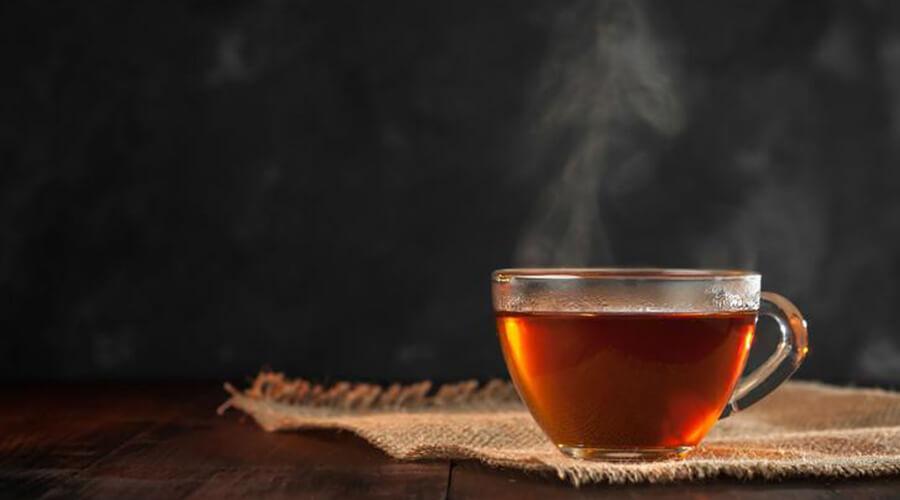



Common symptoms of urinary tract inflammation include a stinging, burning sensation and lower abdominal cramps.
If the infection affects only the lower urinary tract, the disease is milder. In more severe cases, however, the upper urinary tract, including the kidneys, may be affected. Urinary tract infections can lead to inflammation of the urethra, bladder or, very often, kidney pelvis. In the case of cystitis, pathogens, most often bacteria, proliferate in the bladder, causing frequent urination and pain when passing urine. Most of the time bladder infections can be treated with a tea or tea blend, which can help to relieve the various inflammations. In most cases of inflammation, tea of bearberry leaf can provide relief.
The risk of developing urinary tract infections can be avoided by stricter hygiene rules, plenty of fluid intake and frequent urination. It is also worth taking care not to catch a cold, as cooling the pelvis and legs is conducive to the growth of pathogens.
One of the most commonly used herbal teas for cleansing the bladder is bearberry leaf tea.
The decoction of this herb can be made into a really great diuretic tea, which, among its many benefits, becomes an excellent bladder cleansing tea. Among its other benefits, it has good antibacterial and antiseptic properties. Thanks to these, it is able to eliminate inflammation in bladder, urethral, renal and female pelvic problems.
When preparing it, one important thing to remember is to prepare it by steeping. This is important because the large quantities of tanning agents contained in the soup are dissolved out in large quantities by boiling. These can then easily lead to stomach upsets. This can be avoided by soaking. Simply soak 1-2 teaspoons of bearberry leaves in a cup of cold water and leave to stand for 4-6 hours. Afterwards, strain, warm and ready to drink.
Juniper extract has a strong antibacterial effect and can help treat cystitis.
The anti-inflammatory properties of turmeric can help relieve the symptoms of cystitis.
Nettle extract has a soothing effect on the urinary tract and can help relieve the symptoms of cystitis.
Bear’s thyme and catnip have anti-inflammatory properties and may support the treatment of cystitis.
Cranberry decoction can be a great bladder strengthening tea. This is because it is rich in phytochemicals such as proanthocyanidins, which can help prevent urinary tract infections and support bladder health.
Increased fluid intake: drinking plenty of water can help flush bacteria from the urinary tract and dilute urine, reducing pain.
Warming pads: warming pads or warm baths can relieve pain and help relax muscles.
Vitamin C: Vitamin C can help boost the immune system, which can help fight inflammation. Eating fresh fruit and vegetables can be a good source.
Probiotics: probiotics can help restore the natural balance of bacteria in the urinary tract.
Avoid coffee, alcohol and spices: these substances can irritate the bladder, so it’s a good idea to reduce or temporarily avoid their consumption.
Rest: Rest can help the body to heal.
The terms lower urinary tract infection and flatulence often refer to the same phenomenon, namely inflammation of the bladder. Women are usually affected more often, but they can also occur in men and children. Lower urinary tract infections are usually bacterial in origin, while flatulence often refers to a broader set of symptoms, which may be bacterial but may also be due to other causes, such as irritation or allergies.
Lower urinary tract infections usually present with the following symptoms:
Frequent, painful urination.
Burning sensation or pain during urination.
Abdominal pain or discomfort.
A feeling of urgency to urinate.
Troubled or smelly urine.
The only reliable way to determine exactly what is causing the symptoms is to have a medical examination and laboratory tests. A doctor should be consulted as soon as symptoms are detected so that a proper diagnosis and treatment can be given.
Blueberries: blueberries have natural antibacterial and anti-inflammatory properties, which can help prevent and treat cystitis.
Shepherd’s Purse: This plant is traditionally used to support bladder and urinary tract health. It has anti-inflammatory and diuretic properties.
Pistachio: The leaves and bark of pistachio are traditionally used to treat bladder problems due to their mild diuretic effects.
Medical Sage: Sage has anti-inflammatory and antimicrobial properties, so it can help relieve bladder inflammation.
Nettle: Nettle leaves have traditionally been used as a diuretic and bladder tonic.
Dandelion: This herb has diuretic properties and can help relieve the symptoms of bladder inflammation.


HillVital balms are your reliable support for an active life, crafted from natural ingredients!